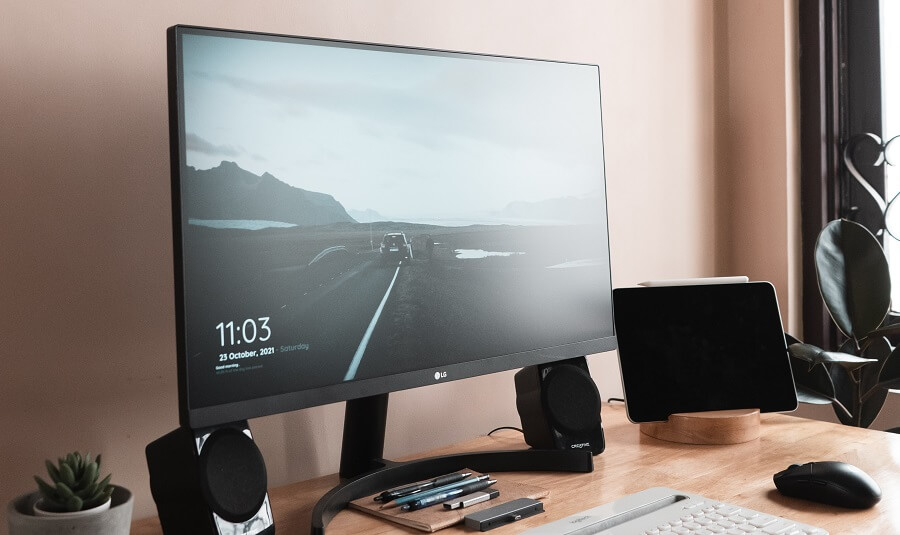There are 4 main components on a computer that affect performance. The two main ones are the processor (CPU), and the graphics card (GPU). Today, I will cover which is more important for FPS.
Overall, the GPU is more important than the CPU for FPS. Independent tests have found that getting a better graphics card (GPU) provides the most significant improvement in FPS. Whereas, getting a better CPU provides no improvement in FPS.
But, it does depend on what our PC currently has, if you have a graphics card that is currently better than your CPU, upgrading the CPU can utilize more of GPU. You can tell this by looking at what percentage of the GPU is being utilized in game in the Windows Task Manager.
Below, I will cover:
- Is it better to have a faster processor or a better graphics card
- Should you spend more on the CPU or the GPU
- Does a better CPU give more FPS
Let’s get into it!
Is It Better to Have Faster Processor or Better Graphics Card

In general, it’s better to have a slightly better graphics card. But, it’s important that the tier of the graphics card matches the tier of the CPU. There are broadly low, mid, and high tiers of computer components.
It’s not optimal to get a graphics card that is significantly above the tier of the processor. The reason is the processor will not be able to keep up. As a result, the GPU will not be fully utilized.
As a general rule, you want to match the speed of the graphics card to the speed of the CPU. And then, get a graphics card that is a little bit better.
Below, is a video from Tech Team GB, where they had a mid range computer. They had a mid-range CPU, and a mid-range GPU.
They also had a GPU, and CPU that were quite a bit faster. They tried the four different combinations and here’s a table that shows the results:
| CPU tier | GPU tier | Performance |
| mid-range | mid-range | optimal |
| mid-range | high mid-range | optimal |
| high mid-range | mid-range | sub-optimal |
| high mid-range | high mid-range | optimal |
The data showed that getting a better GPU but not one that is significantly better provides the best bang for buck. Also, that a better CPU does not improve the performance of the graphics card.
Here’s the video that shows the tests:
Why the GPU is more important than the CPU for FPS
A CPU and GPU both have a maximum speed. Interestingly, a mid-range CPU can keep up with a better GPU. But, a better CPU doesn’t get more out of the GPU. Because the CPU is already able to max out the GPU.
Another very important factor is the RAM. RAM comes in a few different speeds. I explained in detail if RAM speed is important for computer performance in this article about whether slow RAM affects the CPU.
How to know what the best CPU GPU combination is
There are a few very good websites that provide the best CPU and GPU combinations based on the different tiers. For example, if you are a hobby gamer, a semi-serious gamer, or a professional gamer.
Typically you should aim to get a CPU and GPU combination that is as similar as possible to these. And if you have a bit more to spend then get a graphics card that is slightly better.
A good example is Logicalincrements.com. Another really good resource is Cpubenchmark.com. CPU Benchmark provides a rating for all of the components on computers based on various factors that you can filter for.
I personally used it when I was buying a new laptop. Another really handy thing to know is how the Intel i-series generations work. Intel is arguably the most popular CPU company. As you may know they have the i3, i5, i7, and i9.
The i9 is the best and the i3 is the worst. However, there are also many different generations. For example, there is the i5 9th generation, and i7 8th generation. The rule of thumb is that you go back two generations to go down a tier.
For example, an i7 8th generation, is the same as an i5 10th generation, and an i3 12th generation. And an i9 6th generation. Knowing this is super handy when comparing computer.
In all my research I have found that AMD does not have a logical way to know which processor is better or worse than the other. So, I went with an Intel CPU.
Getting a dedicated graphics card when your PC has an integrated graphics card
Virtually all processors (CPUs) come with a dedicated graphics card. The one exception is very high end AMD CPUs. The assumption is that a person getting such a high end CPU will get a high end GPU to match to utilize the CPU to the max.
Whereas, for every day PC users, and hobby gamers an integrated graphics card provides more than enough performance. However, getting a dedicated graphics card, when your PC has a integrated graphics card is the most significant upgrade to FPS, and ingame performance for a computer.
Does a Better CPU Give More FPS
In general, a better CPU does not give more FPS. The one exception is if your GPU is quite a bit better than your CPU. If you are not using or getting a dedicated graphics card, then getting a better CPU will give more FPS.
But, if you currently have a dedicated graphics card, then upgrading the CPU will not give more FPS. the best option is to get a GPU that is a faster. However, it’s important that the GPU is not too high end. Otherwise, the CPU will not be able to max it out.
Should I Spend More on CPU or GPU
As a general rule, you should spend more on the GPU than the CPU. This is doubly true, if you are using an integrated graphics card.
Getting a dedicated graphics card provides the most significant performance improvement for a computer. After that, the next best upgrade is to get a faster GPU if required.
Getting a better CPU only makes sense if you are getting a better GPU as well. If you are keeping your existing GPU, you should get a better GPU. Getting a better CPU won’t provide any performance improvement as shown in the independent tests at the start of this article.
